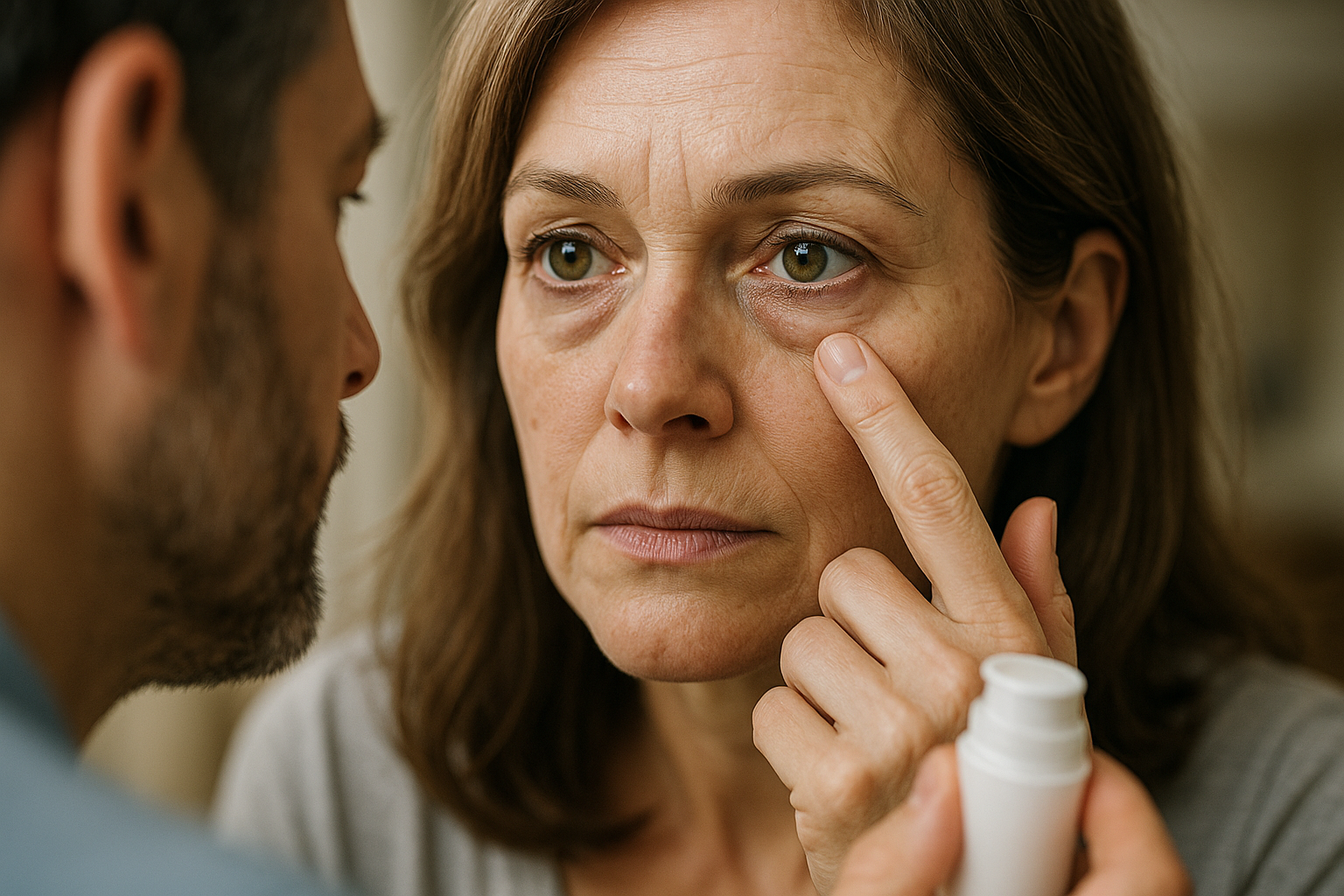Scalp Psoriasis Explained: Symptoms, Causes, and Relief Options
Scalp psoriasis is a chronic skin condition that can cause itching, flaking, and discomfort. In this article, we explore the key symptoms, possible causes, and treatment options that can help manage flare-ups and improve your quality of life without making exaggerated claims.

What are the common symptoms of scalp psoriasis?
Scalp psoriasis presents with several distinctive symptoms that can range from mild to severe. The most recognizable sign is the appearance of red, raised patches covered with silvery-white scales on the scalp. These patches may be small and localized or cover large areas of the head. Many people experience intense itching, which can be particularly bothersome at night and may interfere with sleep quality.
Flaking is another hallmark symptom, often mistaken for severe dandruff. However, psoriasis flakes tend to be thicker and more silvery than typical dandruff. Hair loss may occur, though it’s usually temporary and results from excessive scratching or aggressive removal of scales rather than the condition itself. Some individuals also experience bleeding when scales are removed, and the affected areas may feel tender or painful to the touch.
What triggers scalp psoriasis flare-ups?
Understanding what triggers scalp psoriasis flare-ups is crucial for effective management. Stress is one of the most common triggers, as it can weaken the immune system and exacerbate autoimmune responses. Weather changes, particularly cold, dry conditions, can worsen symptoms by reducing skin moisture and increasing irritation.
Certain medications, including lithium, beta-blockers, and antimalarial drugs, may trigger or worsen psoriasis symptoms. Infections, especially strep throat, can also precipitate flare-ups. Skin injuries such as cuts, scrapes, or sunburn may trigger the Koebner phenomenon, where new psoriatic lesions develop at the site of injury. Additionally, excessive alcohol consumption and smoking have been linked to increased psoriasis severity and frequency of flare-ups.
What are the most effective treatment options for scalp psoriasis?
Effective treatment for scalp psoriasis typically involves a combination of approaches tailored to the severity of symptoms. Topical treatments are often the first line of defense and include corticosteroid shampoos, creams, and solutions that help reduce inflammation and scaling. Coal tar preparations have been used for decades and can effectively slow skin cell growth while reducing itching and scaling.
For moderate to severe cases, dermatologists may prescribe systemic treatments such as methotrexate, cyclosporine, or newer biologic medications that target specific parts of the immune system. Phototherapy, including narrowband UVB light treatment, can be beneficial for widespread scalp psoriasis. Salicylic acid products help remove thick scales, making other treatments more effective.
How can you manage scalp psoriasis flare-ups at home?
Home management strategies play a vital role in controlling scalp psoriasis symptoms between medical treatments. Gentle, consistent scalp care is essential. Use lukewarm water when washing hair, as hot water can increase irritation and drying. Choose fragrance-free, moisturizing shampoos and avoid products with harsh chemicals or sulfates.
Regular moisturizing is crucial for maintaining scalp health. Apply moisturizers or prescribed treatments to slightly damp skin to lock in hydration. Avoid picking or scratching affected areas, as this can worsen inflammation and potentially lead to infection. Stress management techniques such as meditation, yoga, or regular exercise can help reduce the frequency and severity of flare-ups. Maintaining a healthy diet rich in anti-inflammatory foods and staying well-hydrated also supports overall skin health.
Which scalp psoriasis treatments are most commonly prescribed by dermatologists?
Dermatologists in the United States typically follow a stepped approach when treating scalp psoriasis. Topical corticosteroids remain the most frequently prescribed first-line treatment due to their anti-inflammatory properties and proven effectiveness. Medium to high-potency steroids are often recommended for initial treatment, with lower potency options for maintenance therapy.
Vitamin D analogs like calcipotriene are commonly prescribed alongside or alternating with corticosteroids to reduce the risk of side effects from prolonged steroid use. For patients with moderate to severe psoriasis, dermatologists may prescribe combination therapies that include topical treatments with systemic medications. Biologic drugs such as adalimumab, etanercept, and newer options like secukinumab are increasingly prescribed for patients who don’t respond adequately to traditional treatments.
Treatment costs and provider options across the United States
The cost of scalp psoriasis treatment varies significantly depending on the severity of the condition and chosen treatment approach. Over-the-counter treatments like medicated shampoos typically range from $10 to $30 per bottle, while prescription topical treatments can cost $50 to $200 monthly without insurance. Dermatology consultations generally range from $200 to $400 for initial visits, with follow-up appointments costing $150 to $300.
| Treatment Type | Provider/Product | Cost Estimation |
|---|---|---|
| Prescription Topical | Clobetasol Solution | $80-150/month |
| Medicated Shampoo | Neutrogena T/Gel | $12-18/bottle |
| Biologic Injection | Humira (adalimumab) | $5,000-6,000/month |
| Dermatology Visit | Local dermatologist | $200-400/visit |
| Phototherapy | Dermatology clinic | $75-150/session |
Prices, rates, or cost estimates mentioned in this article are based on the latest available information but may change over time. Independent research is advised before making financial decisions.
Conclusion
Scalp psoriasis is a manageable condition with proper understanding and treatment. While it can be challenging to live with, combining medical treatments with effective home care strategies can significantly improve symptoms and quality of life. Working closely with a dermatologist to develop a personalized treatment plan is essential for achieving the best possible outcomes. With consistent care and appropriate treatment, most people with scalp psoriasis can achieve significant symptom relief and maintain healthy scalp conditions.
This article is for informational purposes only and should not be considered medical advice. Please consult a qualified healthcare professional for personalized guidance and treatment.




